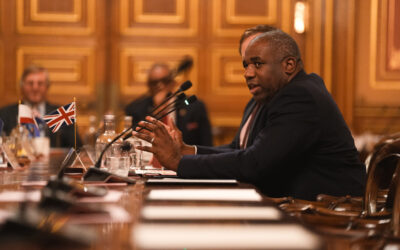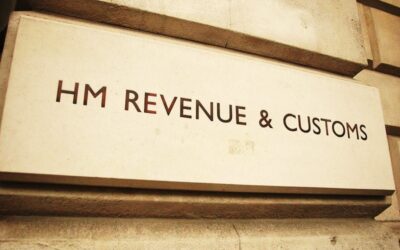-
HMRC’s record on tax fraud has been questioned by two select committees and in several parliamentary debates in recent weeks
-
The last select committee inquiry on Tax Fraud was in 2015
Recent weeks have seen HMRC being put under intense scrutiny on their record on tackling tax fraud.
Part of the trigger for this was the revelation that on current estimates, the department would only recover 25% of the £5.8bn paid out in fraud and error via the Covid relief schemes, furlough, Eat Out To Help Out and the Self-Employment Income Support Scheme.
This figure is arrived at if you take the amount HMRC has already managed to recover from overpayments, added to the £800m-£1bn that HMRC says they hope to get back with their Taxpayer Protection Task Force.
HMRC’s estimate of how much the new Taxpayer Protection Taskforce would seek to recover has been around for a while,1Richard Partington, HMRC boosts efforts to recoup £1bn in suspect Covid payouts, The Guardian, 16 November 2021, … Continue reading however, HMRC had previously suggested that they could recover substantially more. Notably, when Jim Harra gave an interview to the Financial Times late last year, he said that they would struggle to recoup more than 50% of the funds lost (£2.9bn)2Emma Agyemang, HMRC expects to recover less than half £5.8bn lost in Covid fraud and errors, Financial Times, 21 November 2021, https://www.ft.com/content/3991505c-8311-401e-aece-55342f2b07df.
In January, HMRC put out a myth-buster which appeared to disclose for the first time that £1bn is the total of the department’s current ambition in Covid support scheme fraud and error recovery given the resources they currently have to deal with the problem.3HMRC responses to inaccurate claims, HMRC, 12 January 2022, https://www.gov.uk/government/news/hmrc-responses-to-inaccurate-claims
TaxWatch picked up on this, noting the apparent revision down from Jim Harra’s 50% remarks to the FT, and tipped off The Times, which ran the story the following week.4David Byers, Treasury writes off £4.3bn in Covid payments lost to fraud, The Times, 17 January 2022, … Continue reading
On the day the article was published, Jim Harra was asked about the story at his appearance before the Public Accounts Committee,5Public Accounts Committee, Oral Evidence: HMRC’s management of tax debt, HC 953, House of Commons, 17 January 2022, https://committees.parliament.uk/oralevidence/3288/default/ and on Friday 11th February, the committee published a highly critical report, stating that HMRC’s current plans “risks rewarding the unscrupulous and sending a message that HMRC is soft on fraud.”6https://committees.parliament.uk/committee/127/public-accounts-committee/news/160942/hmrc-ignorance-and-inaction-rewarding-the-unscrupulous-and-looks-soft-on-fraud/
After HMRC’s grilling before the PAC, next, it was the turn of Treasury Ministers when Labour’s Pat McFadden put down an Urgent Question forcing the Government to make a statement on the issue.
In that statement, the Government argued that the speed with which the Covid support systems were designed and implemented meant that a greater amount of fraud was inevitable. If the government put in place more checks that would have led to delays in getting cash into the hands of businesses that were in crisis, leading to far worse outcomes.7Coronavirus Grant Schemes: Fraud, Hansard vol. 707, Tuesday 18 January 2022
That is undoubtedly true, and it is worth noting that the furlough scheme has an estimated fraud and error rate of 8.7%, not wildly above the normal fraud and error rate in the tax system of around 5%.8Public Accounts Committee, HMRC Performance in 2020-21, House of Commons, https://publications.parliament.uk/pa/cm5802/cmselect/cmpubacc/641/report.html It is trite but true to say that the vast majority of claims were validly made by people entitled to them.
However, now that the money has gone, with billions currently sitting in the bank accounts of crooks, why are we not spending more to go after it?
This was a point made by Lord Agnew, the Government Minister responsible for counter fraud, in dramatic style later in the week when he resigned from the front bench when responding to a question from Labour on the £4.3bn tax fraud write off, stating that “a combination of arrogance, indolence and ignorance” was freezing the government machine.9Conservative minister resigns in anger over Covid fraud, BBC News, 24 January 2022, https://www.bbc.co.uk/news/uk-politics-60117513
Treasury ministers are now keen to stress that the £4.3bn which HMRC has said will, on current estimates, be unlikely to be recovered has not been written off. This point was made by the Chancellor himself in a tweet thread,10Rishi Sunak, Tweet Thread on Covid support measures fraud, Twitter, 26 January 2022, https://twitter.com/RishiSunak/status/1486332699337973763?s=20&t=AjAVwWPkHymzw2I7kcfPMw and again by Treasury ministers during an opposition day debate on fraud in the House of Commons.11Tackling Fraud and Preventing Government Waste, Hansard Vol. 708, Tuesday 1 February 2022, … Continue reading. The response by the Government that it would not be writing off the fraud prompted Lord Agnew to say that his resignation had at least “achieved something”.12Alice Thomson, Lord Agnew: ‘Billions were written off and no one seemed to care but me’, The Times, 28 January 2022, … Continue reading
However, the determination from Ministers to say that they will continue to chase down the missing £4.3bn has not yet been matched with any announcement of more money.
As TaxWatch has pointed out, the Treasury is investing far more money in going after the rise in benefits fraud coming out of the pandemic, giving the DWP a cash injection of £613m to tackle the problem.13Funding to fight covid related tax and benefits fraud, TaxWatch, 29 December 2021, http://13.40.187.124/covid_fraud_spending_dwp_vs_hmrc/
HMRC on the other hand appears to be funding their £100m taxpayer protection task force from their own resources. The staff are all being recruited internally, as was recently confirmed by HMRC.14Treasury Committee, Oral evidence: The work of HMRC, HC 1095 Q25, House of Commons, 2 February 2022, https://committees.parliament.uk/oralevidence/3394/pdf/
The growing disquiet about HMRC’s plans to recover losses to fraud and error in Covid relief schemes has also led to MPs raising questions about HMRC’s broader approach to tax fraud.
At a recent Treasury Select Committee hearing, Kevin Hollinrake MP began questioning HMRC officials on why levels of both criminal investigations and civil fraud investigations under Code of Practice 9 had been declining since 2016.
In response, HMRC said that they had taken a policy decision to do fewer fraud prosecutions and only concentrate on more serious and complex cases.
Hollinrake seemed unimpressed, saying that it sent the message that some crime doesn’t matter and comparing HMRC’s policy to telling a burglar, “ok so you stole the stuff out the house, give us it back, and a bit extra and you can carry on.”
Mr Hollinrake also questioned why there had been no successful prosecutions for promoters of disguised remuneration schemes, and called on HMRC to bring forward some cases in this area.
This is not the first time MPs have raised concerns about HMRC’s approach to tax fraud in recent years. In 2015, the Public Accounts Committee’s annual report on HMRC’s performance described the number of criminal prosecutions for offshore evasion as “woefully inadequate”15HM Revenue & Customs Performance 2014-15, Public Accounts Committee, 28 October 2015, https://publications.parliament.uk/pa/cm201516/cmselect/cmpubacc/393/393.pdf.
The following year, the Committee completed a short inquiry into tax fraud which found that HMRC had “no strategy for tackling tax fraud” and that there was a “perception that HMRC does not tackle tax fraud by the wealthy”, which needed to be addressed.16Public Accounts Committee, Tackling Tax Fraud, House of Commons, 23 March 2016, https://publications.parliament.uk/pa/cm201516/cmselect/cmpubacc/674/674.pdf
At the time, HMRC told the committee that it was seeking funding to enable it to prosecute more cases of serious and complex tax fraud. This became a target to increase the number of prosecutions of “serious and complex” tax fraud to 100 a year by 2020.
As our recent State of Tax Administration report has found, HMRC appears to have quietly dropped that target, with progress against the target no longer appearing in HMRC’s Annual Report.17State of Tax Administration 2022, TaxWatch, 11 February 2022, http://13.40.187.124/state_of_tax_administration/
Given the growing concern about tax fraud, and indeed all types of fraud, falling levels of civil fraud investigations and criminal prosecutions, and a clear demand from both the public and Parliament for Government to do more in this area, perhaps this is the right time for Parliament to revisit the issue with another inquiry into HMRC’s approach to tax fraud.
References
| ↑1 | Richard Partington, HMRC boosts efforts to recoup £1bn in suspect Covid payouts, The Guardian, 16 November 2021, https://www.theguardian.com/world/2021/nov/16/hmrc-boosts-efforts-to-recoup-1bn-in-potentially-fraudulent-covid-payouts |
|---|---|
| ↑2 | Emma Agyemang, HMRC expects to recover less than half £5.8bn lost in Covid fraud and errors, Financial Times, 21 November 2021, https://www.ft.com/content/3991505c-8311-401e-aece-55342f2b07df |
| ↑3 | HMRC responses to inaccurate claims, HMRC, 12 January 2022, https://www.gov.uk/government/news/hmrc-responses-to-inaccurate-claims |
| ↑4 | David Byers, Treasury writes off £4.3bn in Covid payments lost to fraud, The Times, 17 January 2022, https://www.thetimes.co.uk/article/treasury-writes-off-4-3bn-in-covid-payments-lost-to-fraud-dfkxt5fr7 |
| ↑5 | Public Accounts Committee, Oral Evidence: HMRC’s management of tax debt, HC 953, House of Commons, 17 January 2022, https://committees.parliament.uk/oralevidence/3288/default/ |
| ↑6 | https://committees.parliament.uk/committee/127/public-accounts-committee/news/160942/hmrc-ignorance-and-inaction-rewarding-the-unscrupulous-and-looks-soft-on-fraud/ |
| ↑7 | Coronavirus Grant Schemes: Fraud, Hansard vol. 707, Tuesday 18 January 2022 |
| ↑8 | Public Accounts Committee, HMRC Performance in 2020-21, House of Commons, https://publications.parliament.uk/pa/cm5802/cmselect/cmpubacc/641/report.html |
| ↑9 | Conservative minister resigns in anger over Covid fraud, BBC News, 24 January 2022, https://www.bbc.co.uk/news/uk-politics-60117513 |
| ↑10 | Rishi Sunak, Tweet Thread on Covid support measures fraud, Twitter, 26 January 2022, https://twitter.com/RishiSunak/status/1486332699337973763?s=20&t=AjAVwWPkHymzw2I7kcfPMw |
| ↑11 | Tackling Fraud and Preventing Government Waste, Hansard Vol. 708, Tuesday 1 February 2022, https://hansard.parliament.uk/Commons/2022-02-01/debates/151F8D55-94D6-408A-88CC-970D350C6F9D/TacklingFraudAndPreventingGovernmentWaste#main-content |
| ↑12 | Alice Thomson, Lord Agnew: ‘Billions were written off and no one seemed to care but me’, The Times, 28 January 2022, https://www.thetimes.co.uk/article/lord-agnew-billions-were-written-off-and-no-one-seemed-to-care-but-me-cvnsqjbzp |
| ↑13 | Funding to fight covid related tax and benefits fraud, TaxWatch, 29 December 2021, http://13.40.187.124/covid_fraud_spending_dwp_vs_hmrc/ |
| ↑14 | Treasury Committee, Oral evidence: The work of HMRC, HC 1095 Q25, House of Commons, 2 February 2022, https://committees.parliament.uk/oralevidence/3394/pdf/ |
| ↑15 | HM Revenue & Customs Performance 2014-15, Public Accounts Committee, 28 October 2015, https://publications.parliament.uk/pa/cm201516/cmselect/cmpubacc/393/393.pdf |
| ↑16 | Public Accounts Committee, Tackling Tax Fraud, House of Commons, 23 March 2016, https://publications.parliament.uk/pa/cm201516/cmselect/cmpubacc/674/674.pdf |
| ↑17 | State of Tax Administration 2022, TaxWatch, 11 February 2022, http://13.40.187.124/state_of_tax_administration/ |



